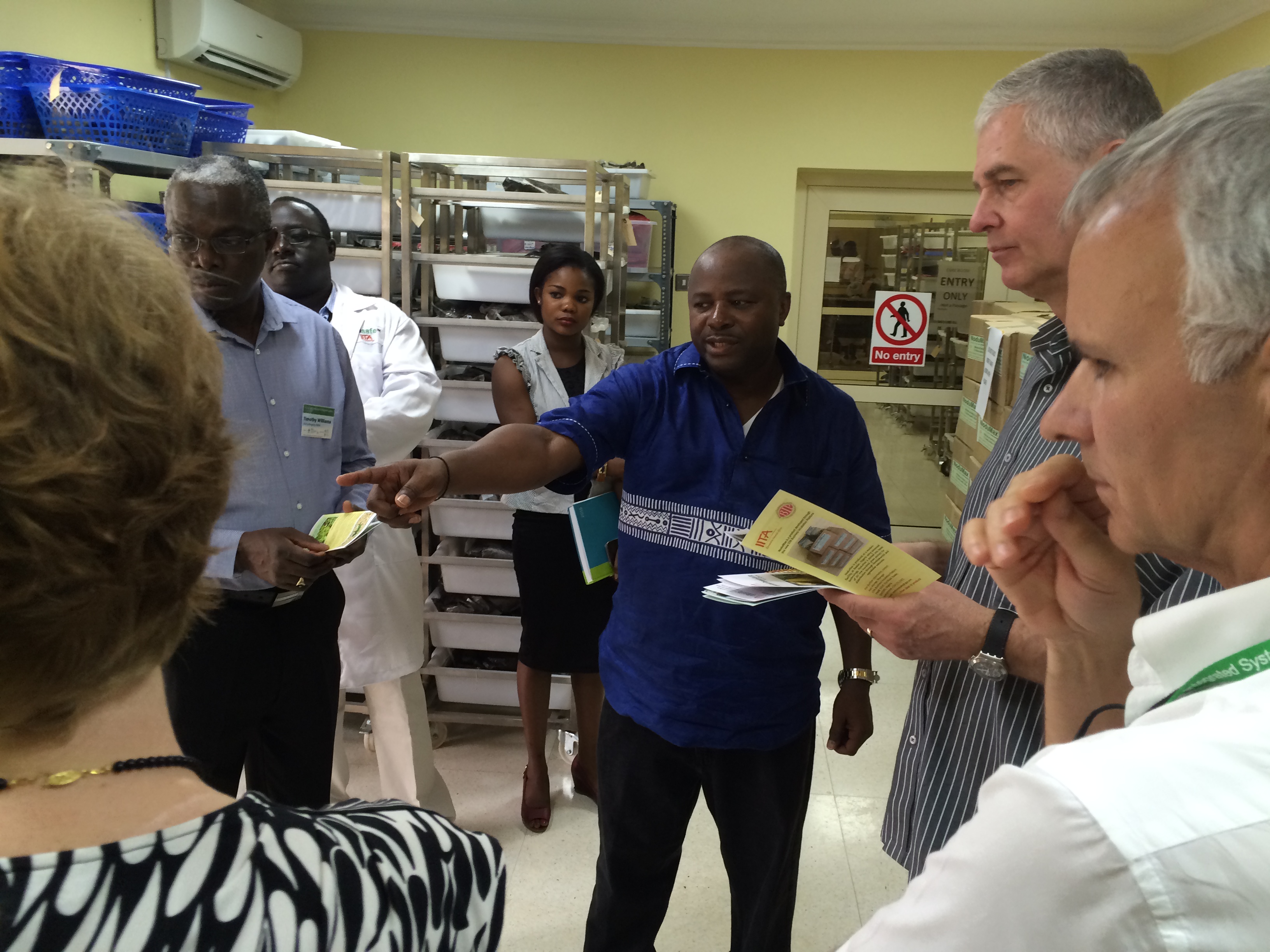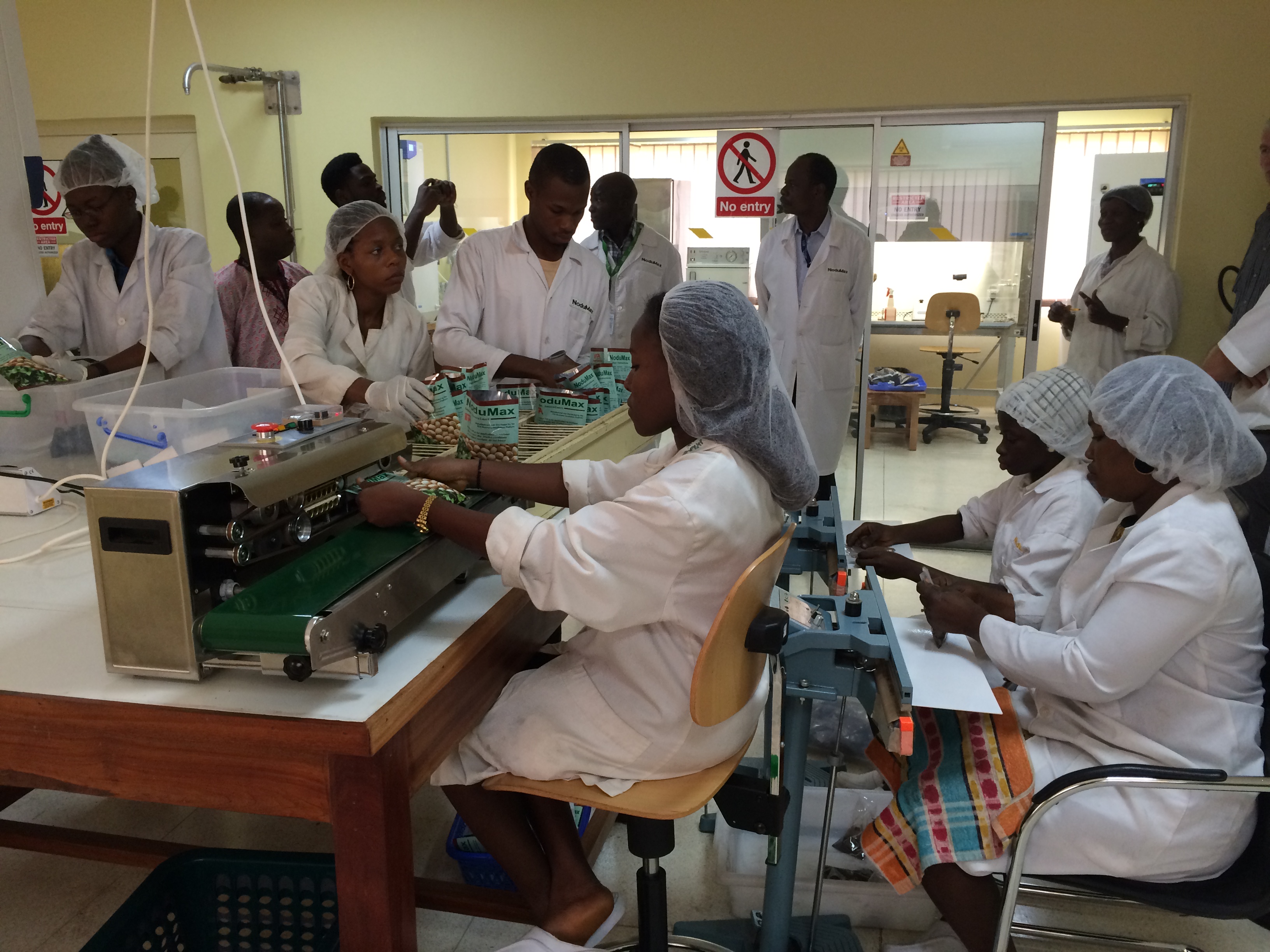“All over Africa, many young people are migrating to cities in search of business opportunities, leaving behind an increasingly ageing population. The challenge is to create business opportunities for productive activity in agriculture and non-farm enterprises, for increased food security but also for combating youth unemployment,” said Dr Sanginga.
CGIAR CEO Rijsberman congratulated IITA for “pioneering the agripreneur approach” and underlined that a precise investment model on integrating the challenge of youth unemployment into research on food security had not yet been established in the consortium. Bioversity DG Tutwiler was in particular pleased that the Agripreneurs were working on nutritional cash crops, vegetables, and soy milk, and were investing in fish farming.
“When we decided in CGIAR on our main crops, we might have forgotten the nutritional values that vegetables and fish can bring to a diet – not only to improve food deficiencies, but also as a measure against obesity,” she said. Dr Sanginga emphasized that the annual return on investment in the fish ponds managed by the IITA Youth Agripreneurs was about $400,000.
The goal of the BIP aflasafe plant and laboratories is to develop cheaper, more effective formulations and manufacturing methods for a product which is combating the deadly aflatoxins found in major staple crops in Africa. The plant is compatible with African farming and business models and can easily be transferred to the private sector. The aflasafe plant is also busy manufacturing the urgently needed product to answer increasing requests from all over the continent. On the day of the visit, the plant was about to produce 8 tons of aflasafe to be air-shipped to Kenya in the evening.
“This is our answer to a request from the Kenyan Government,” explained Lawrence Kaptoge, the aflasafe plant manager. “In Kenya we need to fight aflatoxins now because strains of the plant fungus have already killed many people, as well as increasing the cases of deadly diseases, such as liver cancer.”
The plant can produce up to 40 tons of aflasafe a day but the BIP’s main goal is to get interested parties to invest in plant construction and laboratories all over Africa. More plants and reference laboratories are expected to be built, as the aflatoxin strains are different in each region; they need to be identified before the right aflasafe product can be developed and manufactured. “The many existing requests from countries such as Kenya, Nigeria, Zambia, or Senegal prove that the BIP has developed a business opportunity that improves food safety and might help to save many lives in Africa,” said Kaptoge.
NoduMax is a new legume inoculant for soybean that was recently developed at BIP with the award- winning N2Africa Project. Each package of NoduMax costs about $1.03 to produce and, with manufacturer’s and retailers’ inputs, is expected to be sold for about $2.60, sufficient to inoculate 10 to 20 kg of soybean seeds. The product compares favorably to inoculants produced in other countries where product quality is closely regulated. Product development and efficacy testing continue and the first packages of NoduMax intended for sale are now being produced. The registration of the product for commercial distribution in Nigeria is under way and the first peak production run is just starting as 16 tons of the soybean inoculant are to be produced by April 2015.
The visitors were visibly impressed: “A new vision, passionate people, and promising developments – there is huge potential in IITA’s approach for developing the BIP,” concluded Dr Rijsberman.



No Comments